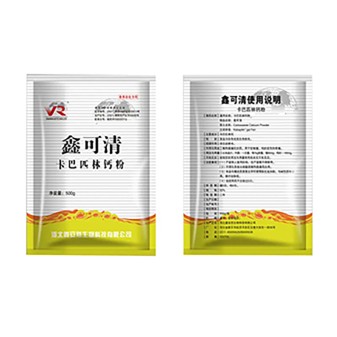- Afrikaans
- Albanian
- Amharic
- Arabic
- Armenian
- Azerbaijani
- Basque
- Belarusian
- Bengali
- Bosnian
- Bulgarian
- Catalan
- Cebuano
- Corsican
- Croatian
- Czech
- Danish
- Dutch
- English
- Esperanto
- Estonian
- Finnish
- French
- Frisian
- Galician
- Georgian
- German
- Greek
- Gujarati
- Haitian Creole
- hausa
- hawaiian
- Hebrew
- Hindi
- Miao
- Hungarian
- Icelandic
- igbo
- Indonesian
- irish
- Italian
- Japanese
- Javanese
- Kannada
- kazakh
- Khmer
- Rwandese
- Korean
- Kurdish
- Kyrgyz
- Lao
- Latin
- Latvian
- Lithuanian
- Luxembourgish
- Macedonian
- Malgashi
- Malay
- Malayalam
- Maltese
- Maori
- Marathi
- Mongolian
- Myanmar
- Nepali
- Norwegian
- Norwegian
- Occitan
- Pashto
- Persian
- Polish
- Portuguese
- Punjabi
- Romanian
- Russian
- Samoan
- Scottish Gaelic
- Serbian
- Sesotho
- Shona
- Sindhi
- Sinhala
- Slovak
- Slovenian
- Somali
- Spanish
- Sundanese
- Swahili
- Swedish
- Tagalog
- Tajik
- Tamil
- Tatar
- Telugu
- Thai
- Turkish
- Turkmen
- Ukrainian
- Urdu
- Uighur
- Uzbek
- Vietnamese
- Welsh
- Bantu
- Yiddish
- Yoruba
- Zulu
8 月 . 16, 2024 16:21 Back to list
Composition and Uses of Tylosin Injection in Veterinary Medicine in China
The Composition and Use of Tylosin Injection in China
Tylosin injection is a significant pharmaceutical product extensively used in veterinary medicine, particularly in livestock. It is primarily produced in China, where it serves to enhance the growth of animals and treat various infections caused by susceptible microorganisms. This article will delve into the composition of tylosin injection and explore its applications and regulatory considerations within the Chinese context.
Understanding Tylosin
Tylosin is a macrolide antibiotic derived from the bacterium *Streptomyces fradiae*. Its mode of action involves inhibiting bacterial protein synthesis by binding to the 50S ribosomal subunit, which effectively halts the growth of gram-positive bacteria and some gram-negative bacteria. Tylosin is particularly effective against pathogens in the respiratory tract, digestive system, and skin. In veterinary medicine, tylosin is commonly used to treat respiratory diseases, enteritis, and infections in poultry and livestock such as pigs and cattle, contributing significantly to animal health and productivity.
Composition of Tylosin Injection
The primary component of tylosin injection is the active ingredient, tylosin tartrate, which is the salt form of tylosin. The composition typically includes
1. Active Ingredient Tylosin Tartrate - Usually available in concentrations ranging from 10% to 50% depending on the formulation and intended use. 2. Excipients These are inert substances that enhance the stability and delivery of the active ingredient. Common excipients include - Water for Injection Serves as the solvent for tylosin tartrate, ensuring proper dissolution and bioavailability. - Buffering Agents Such as citric acid or sodium citrate, which help maintain the pH of the solution within an optimal range to stabilize the active ingredient. - Preservatives Such as benzyl alcohol, to prevent microbial growth in the formulation. - Surfactants Sometimes added to enhance the solubility of the injection.
The formulation is carefully designed to ensure stability, efficacy, and safety for both the animals being treated and those handling the product
.china tylosin injection composition

Applications in Veterinary Medicine
Tylosin injection is widely used in the livestock industry in China. Its applications include
- Growth Promotion It is often included in the feed or administered via injection to promote weight gain and improve feed efficiency in animals, particularly in poultry and swine. - Disease Treatment Tylosin is employed to manage infections such as swine pneumonia, and it has also been used to treat enteric diseases in poultry, thus improving overall herd health. - Prevention Prophylactic use in high-risk populations can help prevent outbreaks of disease, ensuring better animal welfare and economic return for farmers.
Regulatory Considerations
In China, the use of tylosin injection is subject to strict regulations. The Ministry of Agriculture and Rural Affairs (MARA) oversees the approval and monitoring processes for veterinary drugs. Manufacturers must adhere to good manufacturing practices (GMP) to ensure product safety and efficacy. Furthermore, the Chinese government has been actively working to minimize antibiotic residues in animal products, which has implications for the use of tylosin; producers are encouraged to follow withdrawal times and guidelines to ensure food safety.
Conclusion
Tylosin injection represents a pivotal element in the management of livestock health in China. Its composition, primarily consisting of tylosin tartrate, alongside carefully selected excipients, ensures its effectiveness as an antibiotic. Despite its benefits in growth promotion and disease treatment, stringent regulatory measures underline the importance of responsible use, promoting both animal welfare and consumer safety. As the industry evolves, ongoing research and regulatory adjustments will continue to shape the role of tylosin in veterinary medicine.
-
The Power of Radix Isatidis Extract for Your Health and Wellness
NewsOct.29,2024
-
Neomycin Sulfate Soluble Powder: A Versatile Solution for Pet Health
NewsOct.29,2024
-
Lincomycin Hydrochloride Soluble Powder – The Essential Solution
NewsOct.29,2024
-
Garamycin Gentamicin Sulfate for Effective Infection Control
NewsOct.29,2024
-
Doxycycline Hyclate Soluble Powder: Your Antibiotic Needs
NewsOct.29,2024
-
Tilmicosin Premix: The Ultimate Solution for Poultry Health
NewsOct.29,2024













